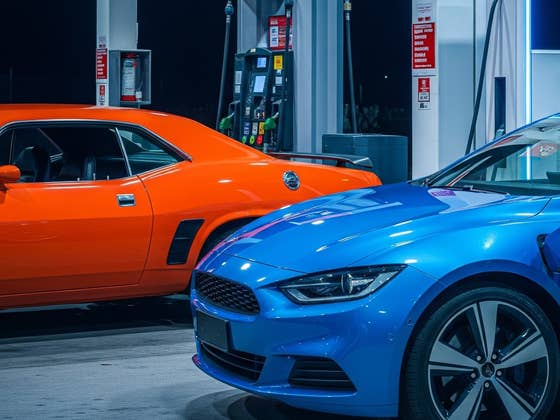Though the US is nowhere near a ban on all internal combustion engines, current debates in Europe could still affect the US market. So, why are manufacturers so vehemently opposed to the proposed ban?
ICE ban? BMW won’t accept it without a fight
Zipse made no secret of what he sees as a negligent policy in the EU region: the planned ban on new combustion engines could have fatal consequences for the European car industry. The fact is, many manufacturers still earn the lion’s share of their revenue from classic petrol and diesel engines. According to the BMW boss, this is precisely what is needed to invest in new, environmentally friendly technologies.
His appeal: when it comes to CO₂ emissions is this: you shouldn’t just focus on the emissions. The entire life cycle of a vehicle, from production to the supply chain to recycling, must be taken into account. There is also another aspect that needs to be considered with the planned regulations: the transition to electric cars is not nearly as smooth as is often portrayed.
Technology neutrality instead of tunnel vision
BMW will nevertheless adhere to its goal of achieving complete CO₂ neutrality in production by 2050. However, this does not necessarily mean that internal combustion engines have to be sidelined immediately. Zipse advocates technological neutrality – in other words, a mix of different drive types.
In addition to e-cars, BMW will also focus on e-fuels and hydrogen rides in the future. The Group plans to launch a vehicle with a pure hydrogen engine as early as 2028. The aim is to meet the diverse needs of customers while also contributing to reducing carbon emissions.
The VDA is also against a blanket ban on ICE
The BMW boss is not alone in his criticism. The German Association of the Automotive Industry (VDA) is also sounding the alarm. It is calling for the current climate targets in the EU to be made more flexible – for example, by reducing CO₂ emissions by 90 percent rather than 100 percent by 2040. The VDA is also in favor of allowing combustion engines that can run on synthetic fuels to remain registered. More is needed than just ambitious targets on paper. The EU must ensure that climate protection and industrial policy are aligned. Regulation alone is not enough – solutions that work in practice are also needed.
The conclusion? The debate about phasing out the internal combustion engine in Europe is in full swing, and BMW is getting involved. One thing is clear: the future of mobility is not black and white. Whether with electricity, hydrogen, or e-fuels, the next few years will show which path is truly sustainable and feasible.
What do you think about the planned ban on internal combustion engines in the EU? Is it a curse or a blessing? Do you think the US should go down a similar path? Could US manufacturers increase their focus on EVs to adapt to the changing market? Let us know your thoughts in the comments.





